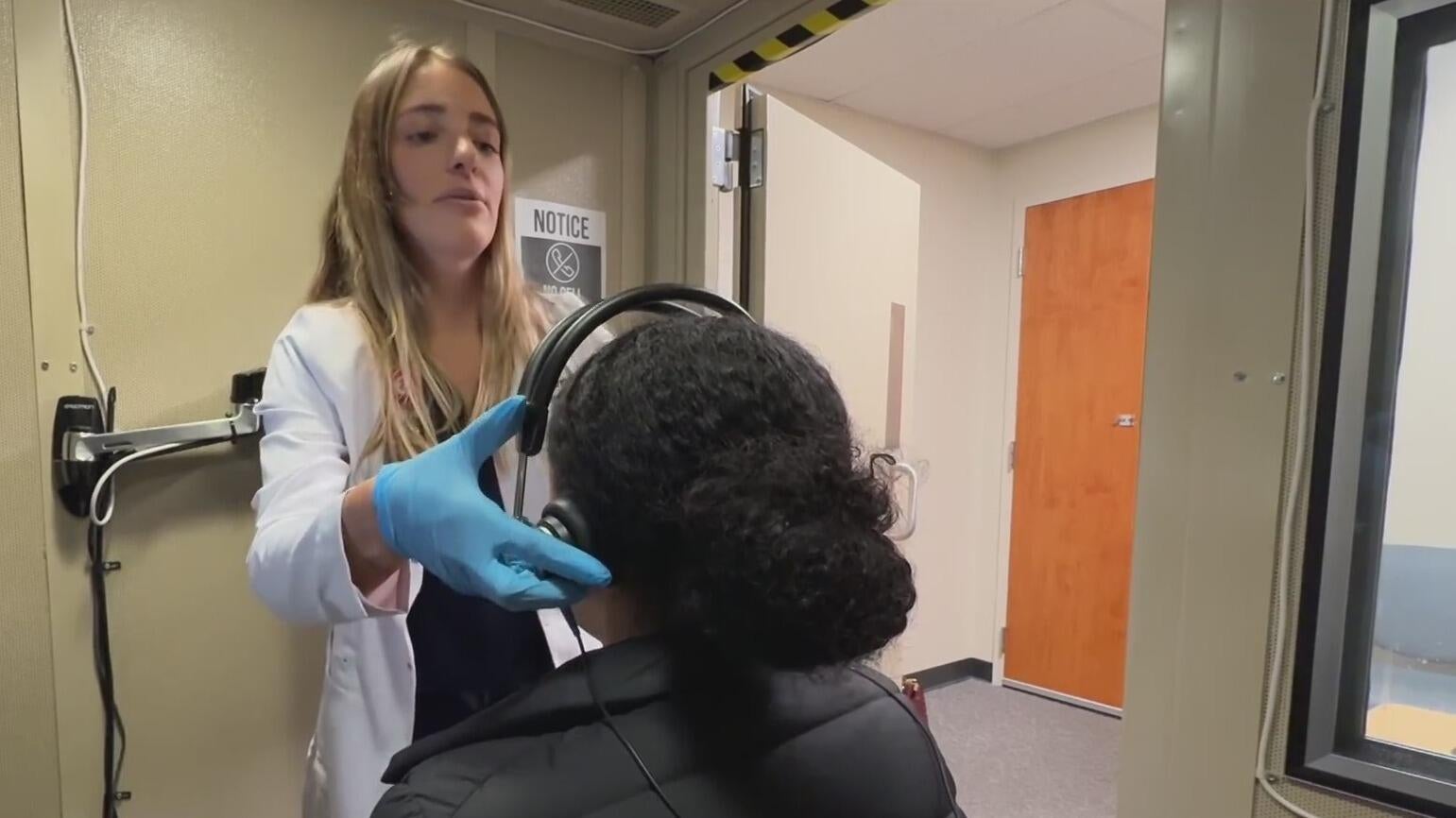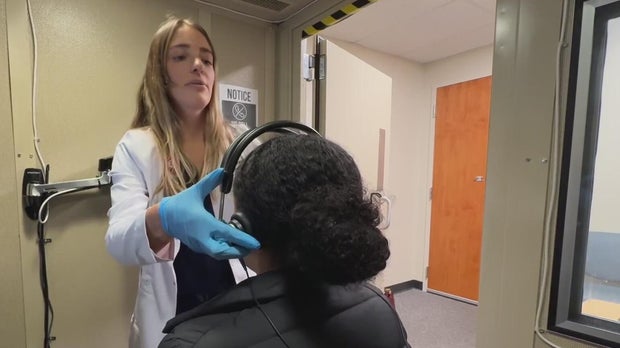Growing number of young adults seek treatment for hearing loss, Bay Area doctors say
A growing number of young adults are grappling with a health issue they once thought was decades away: hearing loss.
Being in a noisy city soundscape, or even a quiet environment, Dr. Rebekah Chang began to notice in her mid-forties that it was getting harder to hear.
"You just don't know what people are saying. Maybe it will be a noisy time for a dinner, or when you're out with your friends for lunch," Chang told CBS News Bay Area.
Chang is a Kaiser Permanente family medicine doctor now in her 50's. These days, she's hearing conversations more clearly with the assistance of hearing aids.
"It's called Phonak Audeo. It's pretty small. It's rechargeable. It's got a little base for recharging," said Chang.
Audiologists said younger adults are increasingly adopting hearing aids, motivated by tech advances and rising awareness of early hearing damage.
Dr. Sara Rittweger is a supervising audiologist at Kaiser Permanente.
"Technology has gotten so much better than what it used to be, that the criterion for people needing a hearing aid or wanting a hearing aid has also opened up too," said Rittweger.
Hearing aid fittings from 2017–2021 show people aged 22–54 increased by about 14%, according to manufacturer Phonak.
Audiologists said over the counter devices for mild to moderate hearing loss, including certain Apple Airpods, following FDA approval in late 2022, are leading to even more younger adults seeking care.
"As people are recognizing these as options, I think actually more people are becoming more motivated to seek more professional or a higher level of care," said Rittweger.
Chang says the stigma of hearing aids associated with older people that she was first concerned about, has waned.
"In my mid 40s, it was a little vanity. I really didn't want to wear hearing aids that people could see," said Chang.
A Johns Hopkins study indicates nearly 27 million Americans age 50 and older have hearing loss, but only one in seven uses a hearing aid.
"I have been wearing these for several years," Chang said. "Hopefully I can help change that stigma a little bit. I really embrace it."
It's made life better for Rebecca. She's hoping others will hear her message.
A recent Johns Hopkins study also found that mild hearing loss doubled dementia risk. Moderate loss tripled risk, and people with a severe hearing impairment were five times more likely to develop dementia.
If you think you're experiencing some hearing loss, experts say to schedule a hearing test with an audiologist.





